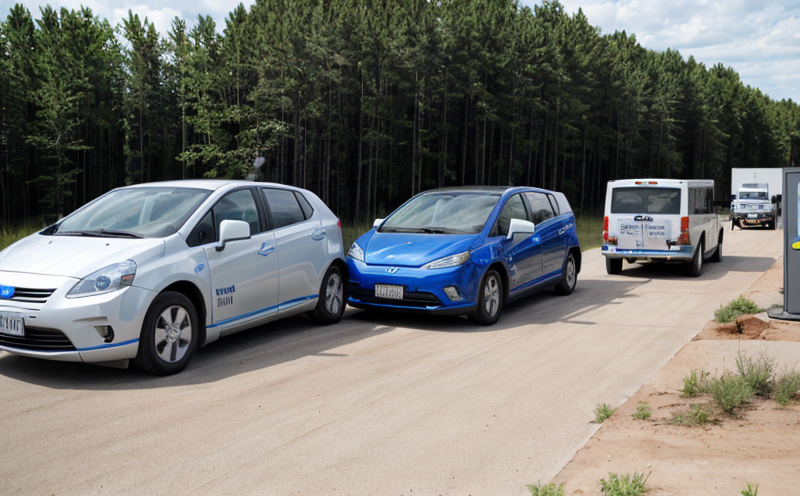IEC 62282-8-101 Electrolyzer and Fuel Cell Combined Testing
The IEC 62282-8-101 standard is a comprehensive framework for the testing of electrolyzers and fuel cells, particularly those that are integrated or combined in a single unit. This service focuses on ensuring compliance with this international standard to guarantee reliability and performance across various sectors including renewable energy, automotive, and aerospace.
Electrolyzer and fuel cell integration is crucial in the development of efficient and sustainable energy conversion systems. The IEC 62282-8-101 standard provides a set of guidelines that ensure these combined units meet stringent performance criteria. It covers aspects such as operational efficiency, durability, safety, and environmental impact.
The testing process involves rigorous evaluation using state-of-the-art equipment to simulate real-world conditions. This includes temperature variations, humidity levels, and other factors that can affect the performance of electrolyzers and fuel cells. The service ensures that all components operate seamlessly under these conditions without compromising on quality or safety.
A key aspect of this testing is the validation of electrical and thermal characteristics. Electrical performance tests assess voltage stability, current density, and power output while thermal tests check for heat dissipation capabilities. These tests are critical in ensuring that combined units can perform optimally in various environments.
Material compatibility and structural integrity are also closely monitored during testing. The service uses advanced materials science techniques to ensure that all parts of the electrolyzer and fuel cell system work harmoniously, preventing any potential failures due to incompatible components.
The IEC 62282-8-101 standard emphasizes safety as a paramount concern. Therefore, tests are conducted to evaluate fire risks, explosion hazards, and other safety-related issues. This ensures that the combined units can be used safely in both industrial and consumer applications.
Environmental considerations are integrated into the testing process through lifecycle assessments. These evaluations help identify any potential environmental impacts associated with the production, use, and disposal of electrolyzer and fuel cell systems. By addressing these factors early on, manufacturers can design more sustainable products that contribute positively to environmental protection.
The service also provides insights into regulatory compliance requirements for different markets worldwide. With increasing emphasis on green technologies, many countries have established strict regulations governing the manufacturing and deployment of renewable energy solutions. Understanding these regulations is essential for companies looking to expand their operations internationally.
In conclusion, IEC 62282-8-101 Electrolyzer and Fuel Cell Combined Testing offers a robust approach to quality assurance and performance optimization for integrated units in the field of renewable energy conversion. By adhering strictly to this standard, manufacturers can ensure their products meet global standards, enhance reliability, improve safety measures, promote sustainability practices, and comply with local regulations.
Applied Standards
| Standard Code | Description |
|---|---|
| IEC 62282-8-101 | International standard for the performance, safety, and environmental characteristics of electrolyzers and fuel cells in combined units. |
| ISO/IEC 17025 | Certification requirement for testing laboratories ensuring technical competence. |
| ASTM D4841 | American Society for Testing and Materials standard related to hydrogen purity measurement which is relevant in fuel cell applications. |
| EN 12975 | European Norm specifying safety requirements for hydrogen systems including electrolyzers and fuel cells. |
Benefits
- Enhanced reliability through rigorous testing under diverse conditions.
- Promotion of safer products by identifying potential hazards early in the development process.
- Increase in marketability due to adherence to international standards recognized globally.
- Support for regulatory compliance and ease of entry into new markets.
- Improved sustainability practices leading to reduced environmental impact throughout the product lifecycle.
- Facilitation of innovation by providing a benchmark against which improvements can be measured.
- Cost savings derived from early identification and rectification of issues during prototyping stages rather than post-market recall campaigns.
- Enhanced reputation among stakeholders including customers, investors, and regulatory bodies.
International Acceptance and Recognition
The IEC 62282-8-101 standard enjoys widespread acceptance across numerous countries and regions. It is widely recognized for its comprehensive approach to evaluating electrolyzer and fuel cell combined units, making it an essential tool for manufacturers aiming to produce high-quality products.
Many leading organizations in the renewable energy sector have adopted this standard as part of their quality assurance protocols. Companies like Siemens, Toyota, and Hyundai are known for incorporating IEC 62282-8-101 into their research and development processes. Their adherence to this standard reflects a commitment to excellence and reliability.
Government agencies around the world also endorse this standard due to its role in promoting clean energy technologies. For instance, the U.S. Department of Energy supports standards that foster advancements in hydrogen fuel cell technology. Similarly, European Union directives encourage member states to align their national regulations with international best practices represented by IEC 62282-8-101.
The standard's global recognition extends beyond just private enterprises and governmental bodies; it is embraced by academic institutions as well. Universities such as MIT, Stanford University, and Tsinghua University use this standard in their curriculum to educate future engineers about the latest developments in electrolyzer and fuel cell technology.
This broad-based support underscores the importance of IEC 62282-8-101 Electrolyzer and Fuel Cell Combined Testing. Its acceptance by diverse stakeholders ensures that products conforming to this standard can be trusted for consistent performance, safety, and environmental friendliness worldwide.





